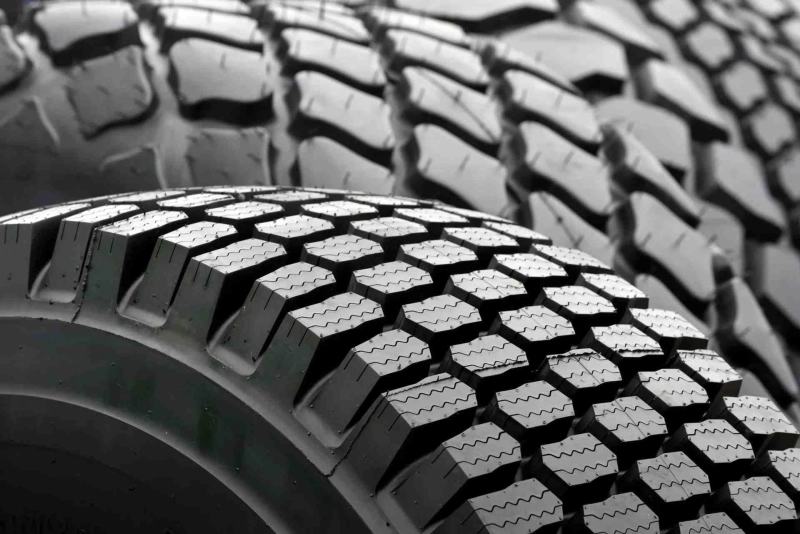When it comes to ensuring a smooth and safe ride on the highways, choosing the right tires is paramount. The quality of your tires not only affects your vehicle's performance but also plays a significant role in your safety. In this article, we will delve into the world of highway driving and explore the best Pilot tires designed to excel in these conditions. Whether you're a frequent traveler or simply want to enhance your driving experience, this guide will help you make an informed decision.
Understanding the Importance of Highway Tires
Highway tires, often referred to as touring tires, are specifically designed to meet the demands of long-distance driving on well-maintained roads. These tires offer several advantages over other types, making them an excellent choice for highway driving.
Benefits of Using Highway Tires
Enhanced Fuel Efficiency:Highway tires are engineered to reduce rolling resistance, resulting in improved fuel efficiency. This means fewer stops at the pump and more money saved on long journeys.
Comfort and Noise Reduction:They are designed for a smoother and quieter ride, ensuring a comfortable driving experience during extended trips.
Excellent Traction:Highway tires provide reliable traction on dry and wet roads, enhancing overall safety.
Longevity:These tires are known for their durability and extended tread life, which is a significant advantage for highway travelers.
Choosing the Right Highway Tires
When selecting the best tires for highway driving, it's essential to consider various factors to match your specific needs and preferences:
Tire Size and TypeThe appropriate tire size and type depend on your vehicle's make and model. Consult your owner's manual or a professional for guidance.
Tread PatternHighway tires typically have symmetrical tread patterns that prioritize smoothness and reduced road noise. Look for a tread pattern that suits your driving style and weather conditions.
Speed RatingEnsure the tire's speed rating matches or exceeds your vehicle's top speed capability. This information can be found on the tire's sidewall.
Load IndexThe load index indicates the tire's weight-carrying capacity. Make sure it can support your vehicle's load requirements.
Maintenance Tips for Highway Tires
To ensure the longevity and performance of your highway tires, follow these maintenance tips:
Regular Inspection
Regularly inspect your tires for signs of wear and tear, punctures, or damage. Address any issues promptly to avoid potential hazards on the highway.
Proper Inflation
Maintain the recommended tire pressure as specified in your vehicle's manual. Proper inflation ensures even wear and optimal fuel efficiency.
Wheel Alignment
Regular wheel alignment checks are essential to prevent uneven tire wear and maintain vehicle stability on the highway.
Rotation
Rotate your tires as recommended by the manufacturer to ensure even tread wear, extending their lifespan.
Key Considerations for Underground Mining Tires
Durability:
Underground mining tyres must be exceptionally durable to handle the abrasive and challenging conditions of mining tunnels. They are designed to resist cuts, punctures, and wear, ensuring a longer lifespan.
Traction:
Traction is crucial in underground mines to prevent slippage and accidents. Specially designed tread patterns and materials provide the necessary grip on uneven and slippery surfaces.
Heat Resistance:
The temperature underground can rise significantly, putting immense stress on tires. Mining tires are engineered to resist heat buildup and maintain their integrity in these extreme conditions.
Load Capacity:
Underground mining often involves moving heavy loads. These tires are designed to carry substantial weights without compromising safety or performance.
Additional Tips for Highway Tire Maintenance
To get the most out of your highway tires, consider these additional maintenance tips:
Tire BalancingRegular tire balancing helps distribute weight evenly across all four tires, ensuring a smoother and more stable ride. It also prevents uneven tire wear.
Check Tire PressureAside from maintaining the correct tire pressure, it's crucial to inspect your tires for any slow leaks or punctures regularly. A well-inflated tire contributes to fuel efficiency and overall safety.
Avoid OverloadingResist the temptation to overload your vehicle, as this can put unnecessary strain on your tires and reduce their lifespan.
Avoid Potholes and DebrisHighway tires are resilient, but they can still suffer damage from potholes and road debris. Drive cautiously and avoid obstacles whenever possible to prevent punctures or structural damage.
Professional InspectionsConsider getting your highway tires professionally inspected at least once a year. Experts can identify issues that may not be apparent to the naked eye.
Choosing the tires for highway driving is a crucial decision that impacts your safety, comfort, and overall driving experience. By considering factors like tire size, tread pattern, speed rating, and load index, you can make an informed choice. Remember to prioritize regular maintenance to maximize the lifespan and performance of your highway tires.
In conclusion, the right set of highway tires can make a significant difference in your driving experience. Whether you prioritize safety, comfort, or fuel efficiency, there are highway tire options tailored to your needs. By following proper maintenance practices, you can extend the life of your tires and ensure a smooth and enjoyable journey every time you hit the open road.
If you're ready to enhance your highway driving experience, explore the various Pilot tyres options available and consult with a professional to find the perfect fit for your vehicle.



